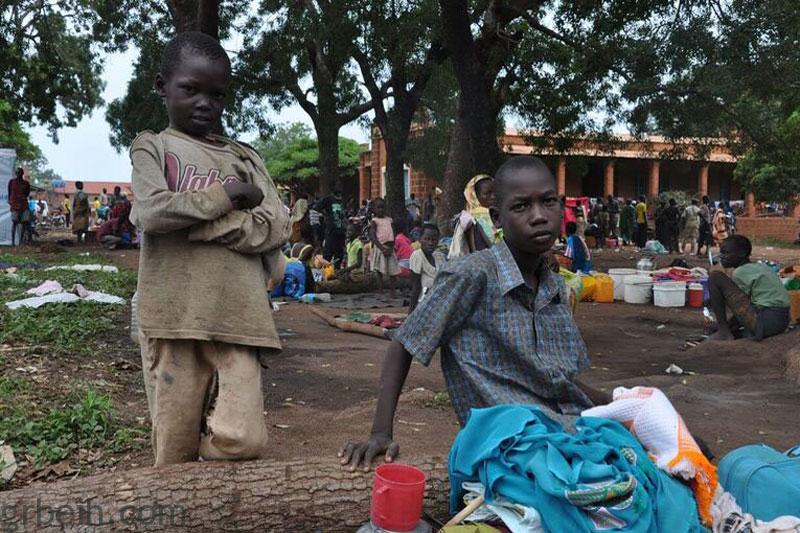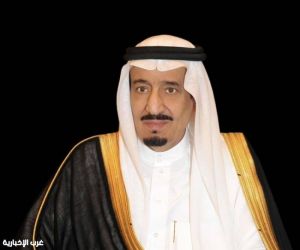
المصدر -
11 July 2016 – Ahead of a meeting with the United Nations Security Council tomorrow on South Sudan, Secretary-General Ban Ki-moon has urged the body to impose an immediate arms embargo, enact additional targeted sanctions on leaders and commanders blocking implementation of the peace deal, and to fortify the UN mission in the country, which has seen a resurgence of deadly violence in recent days.
“This is the time to massively reinforce UN action. When a Government cannot or will not protect its people, and when warring parties seem more intent on enriching and empowering themselves at the expense of their people, the international community has a responsibility to act,” the Secretary-General told reporters at UN Headquarters in New York today.
“I call on the Security Council and the entire membership of the United Nations to rise to this moment and protect the human rights of South Sudanese,” he added.
Over the weekend, Mr. Ban, along with the Council and the UN Mission in South Sudan (UNMISS) condemned the deadly violence and urged calm in the wake fresh clashes in Juba between soldiers of the Sudan People's Liberation Army (SPLA) and the SPLA in Opposition.
Expressing his deep condolences to the families and loved ones of those who have been killed in the fighting in the capital city of Juba over the past four days, Mr. Ban condemned the killing of two Chinese peacekeepers and one UN national staff member.
In his remarks today, the Secretary-General said he is appalled by the “indiscriminate attacks” on civilians and peacekeepers, noting that the two compounds of the UN Mission in South Sudan (UNMISS) in Juba have been caught in the cross-fire and sustained mortar and heavy artillery fire.
At least two internally displaced persons have been killed in the UNMISS protection of civilians sites(PoC), and some 35 people have been injured, while thousands of civilians have fled to various locations in town, including the two compounds.
He noted, however, that freedom of movement and access outside of the UN compounds remains a challenge.
“I demand all the belligerent parties to guarantee unfettered access and freedom of movement to United Nations and humanitarian personnel engaged in life-saving activities in aid of the South Sudanese people,” the Secretary-General said.
Welcoming last night’s statement by the Security Council, which strongly condemned the escalating violence in and around Juba, Mr. Ban stressed that the gravity of the situation depends on a rapid response.
As such, he urged the Council to take action on three fronts: impose an immediate arms embargo on South Sudan, enact additional targeted sanctions on leaders and commanders blocking the implementation of the peace agreement, and fortify UNMISS with “desperately needed” attack helicopters and other material to fulfil the mandate to protect civilians.
In addition, the Secretary-General urged all countries contributing to UNMISS to “stand their ground,” emphasizing that any withdrawals would send “precisely the wrong signal, in South Sudan and across the world.”
The UN chief added that he is consulting with his team and concerned organizations regarding his participation in the African Union (AU) summit to consult with the Heads of State of the Intergovernmental Authority on Development (IGAD) and the region on how to restore and better secure the peace process and report to the Security Council within a week.
Asked by reporters whether he believes that President Kiir and First Vice-President Machar should step aside, the Secretary-General said that is not for him to comment, as they were elected by their own people.
“But they have a huge moral and political responsibility to keep their country in order,” Mr. Ban said.
Answering another question on the proposed arms embargo, the Secretary-General said that the Security Council has for some time been discussing the idea of imposing an arms embargo, but has been unable to agree.
Asked whether he is calling for a specific number of additional troops as part of a reinforcement of UNMISS, Mr. Ban said that the movement of troops, particularly in time of emergency, urgency and danger, has been restricted by the Government of South Sudan. In that regard, he urged the Government to allow the normal operation of UNMISS and all other diplomatic missions in South Sudan.
Noting that there are approximately 12,000 peacekeepers, including police, currently in South Sudan, the Secretary-General said that he will engage with the Security Council tomorrow regarding the specific number of reinforcements and other issues.










